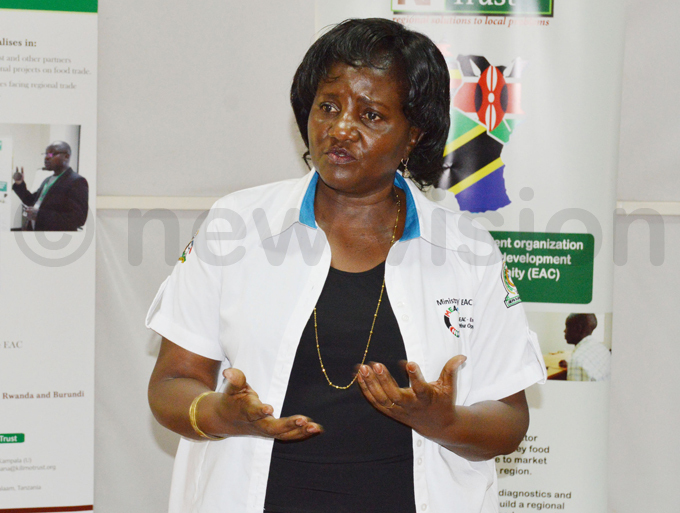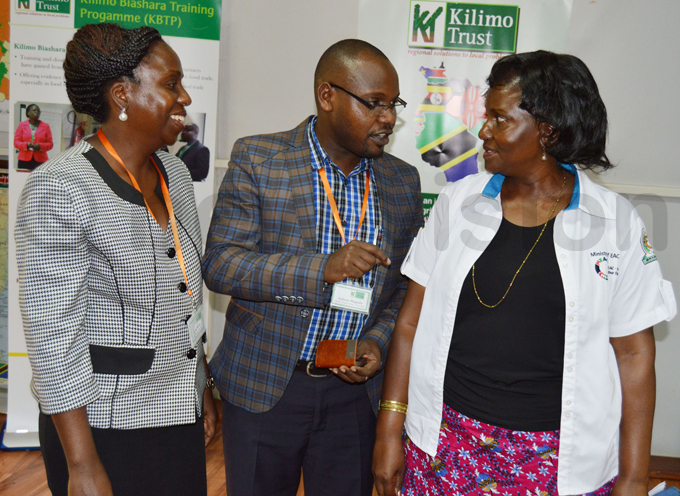Agriculture SMEs not benefiting from EAC markets
Aug 02, 2016
The main challenge affecting farmers is that they produce low quantities and qualities and also produce varieties that are not needed in the market

Small and Medium Enterprises (SMEs) in agricultural are not yet benefiting from the East African Common Market due to lack of skills and tips on how to penetrate the regional market.
The observation was made by the director Trade and Integration at the Ministry of East African Community Affairs (MEACA) Ronah Sserwadda Ssali.
"As a result many still carry out informal trade, produce goods that are not on demand, don't know the standards that are required, that is why they continue making losses," noted Serwada.
She was officiating at the closure of the training program of Uganda Women Entrepreneurs Limited (UWEAL), The Grain Council of Uganda (TGCU) under the theme "Tapping into Regional Markets of Food Staple" at their offices in Bugolobi.
"Through such trainings Kilimo Trust is leading the way in action required to make the EAC Food Security Action Plan a reality as it is building a mass of skilled business leaders who can effectively tap into the regional markets," said Sserwada.
She explained that the EAC Food Security Plan that was endorsed by heads of state in 2011, calls for a joint approach on food security, increase in production and trade of staple foods and move them in areas with a deficit in the region, among others.
The training, conducted by Kilimo Trust and supported by USAID was aimed at equipping participants with tools on how to identify markets, know where to get market information, understand requirements of regional trade and the risks as well as how to mitigate them.
Dr. Birungi Korutaro, Program Team Leader - Markets and Policy Analysis at Kilimo Trust said their interventions are focused on supporting entrepreneurs take advantage of trade opportunities in regional markets.
 The director trade and integration Ronah Sserwada Ssali speaking during the closing ceremony of the course. Photo by Shamim Saad
The director trade and integration Ronah Sserwada Ssali speaking during the closing ceremony of the course. Photo by Shamim Saad

She said the main challenge affecting farmers is that they produce low quantities and qualities and also produce varieties that are not needed in the market.
One of the training techniques that were introduced to participants was the use of trade calendars to guide traders on available markets, seasons of production and times of demand, added Anthony Mugambi, a trainer from Kilimo Trust.
"The trading calendar helps foristance you need to know when there is more maize in Kenya before exporting yours so that you don't get to a market that already has plenty," explained Mugambi.
The chairperson of UWEAL, Gudula Naiga said they have benefited especially on how to trade along the value chain, how to look for markets in addition to the importance of standards in whatever they trade in.
'We have got knowledge on what to do before we export but more training is needed for us to understand the market more so as to be consistent in production and satisfy the market that we are looking for," said Basaza.
The course was attended by 18 participants from UWEAL, the Grain Council of Uganda and Centenary Bank of Uganda with funding from the USAID's East African Trade and Investment Hub program.
